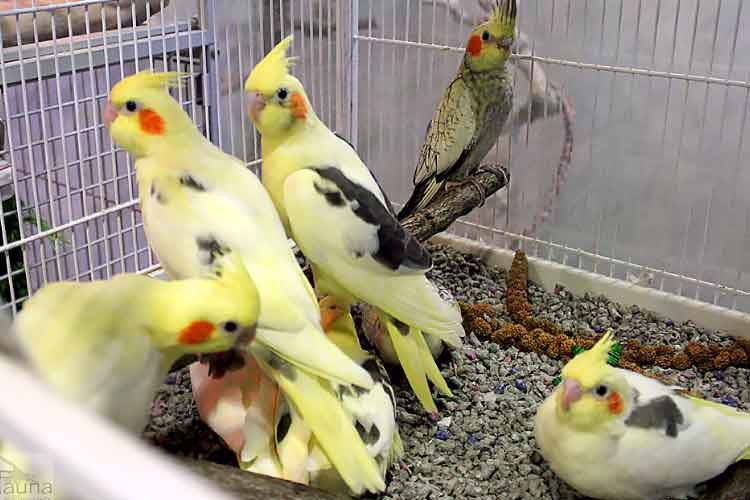Cockatiels are very simple to train and reproduce rapidly if given the right conditions. It’s important to keep in mind that raising cockatiels for breeding may be more of a commitment than you have imagined.
Is breeding cockatiels yield a profit? If you retail a pair of handfed babies at a reasonable price, it is possible to get an ROI of 4 times the investment. So you can make a gross profit of more than 100%, and deducting the costs of other materials like food, nestbox, cage, etc., the net profit could stand at around 100% within the first year of starting the business.
But you will need a lot of time and persistence to achieve such a profit margin. Besides, you must ensure you treat the birds gently throughout the process. We will discuss how you can breed cockatiels for financial benefits in detail in this article.
Is Breeding Cockatiels for Profit Okay?
The answer is yes. Breeding cockatiels can be a profitable business. You will need a primary investment of around $200 comprising of the cocktail pair, cage, nestbox, food, and other essentials. After breeding cockatiels, it is possible to get 12 offspring on average, and if you sell them for $80 each, your return on investment would be $960.
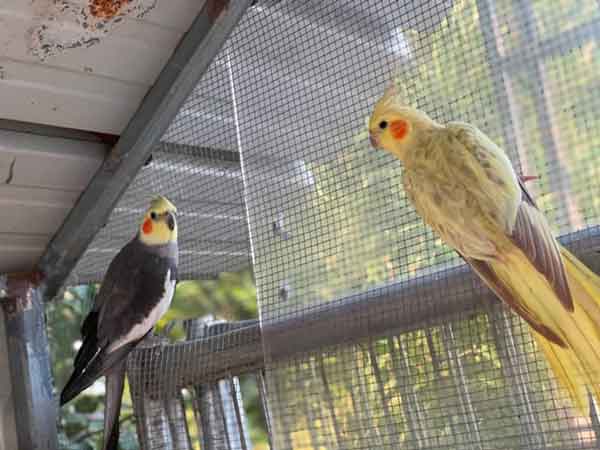
So even if you consider the subsidiary costs, it’s still a profitable business. However, it is important to keep in mind that ethics also have a part in this process.
The most important thing is to look after the health of the cockatiels and provide them with the appropriate amount of space. Since we know that it is against the law to cause the animal pain, we should conduct ourselves ethically throughout the process.
How To Breed Cockatiels For Profit?
Proper breeding can result in a greater profit, and one needs to be extra careful when breeding cockatiels. You can have a look at the below process to get the best results.
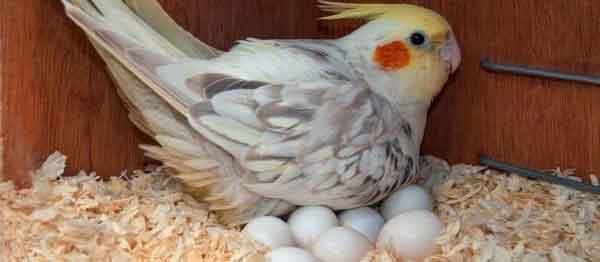
Buy a Pair
To buy a pair, you would need to search for exhibitors of cockatiels who produce birds of high quality, work actively to uphold existing high standards, and continue to work toward improving the breed.
You should keep in mind that you can incur a loss if you buy low-age birds for the breed. You will need to search for and purchase a breeding stock that is around 12 months old from a breeder who can be trusted.
So you have to go to the trouble and expense of finding the right age birds to protect the well-being of their flock.
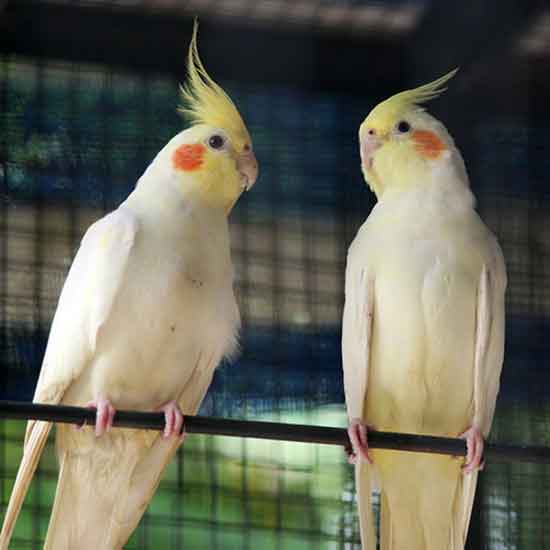
Price Breakdown
When purchasing birds of high quality from an exhibitor, you should budget at least $250 as the primary investment. The typical price breakdown would include $160 ($80 for each budgie), $45 (a breeding cage), $20 (nesting box), and the rest for their cage utensils and food.
In the first three months of your breeding business, you will not earn anything, and there will be no profit; instead, your focus should be on keeping your cockatiel healthy.
If you specify show quality birds, there will be a price increase. Be prepared to spend more money on birds of this caliber.
Proper Breed Time
The ideal breeding age for a female cockatiel is about 2 years and for a male cockatiel is around 18 months. So buy a pair around this age from a trusted retailer, so you will not have to wait for long.
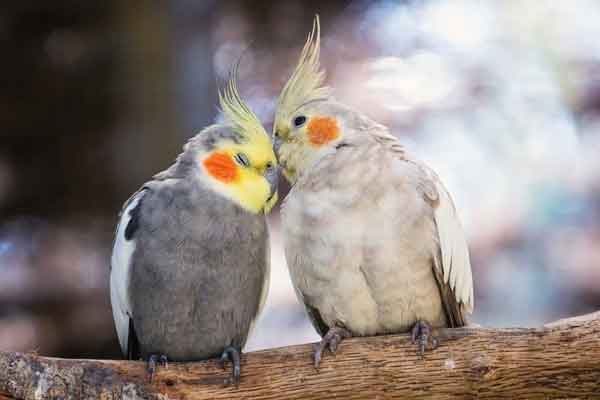
Once you have bought them and secured them in a single enclosure, it is time to wait for the pair to mate. Cockatiels will show mating signs when they are around the breeding age. During this period, ensure a healthy diet and a good environment that can keep them fit and encourage mating.
Diet During Breeding
Now provide them with an exceptional diet during the breeding period. Some food suggestions during this could include:
- Cooked peas and beans
- Hard-boiled eggs
- Moist wheat bread
- High protein cereals and oatmeals
- Egg shells, cuttlebones, and other calcium-rich food for the female cockatiel
Prepare the Nesting Box
One day you may look back and realize that the cuttlebone that was still whole just the day before has been reduced to dust and skin. It indicates that the female bird is demanding calcium more and is prepared to lay eggs at any moment now.
You need to erect the nestbox quickly because the appropriate time has arrived.
At this point, you should typically anticipate having eggs within the next few days. Your bird produces a clutch of 2-3 eggs. After a year of owning them, your pair has the potential to hatch 3 clutches, each containing between 4-5 young, for a total of at least 12 offspring.
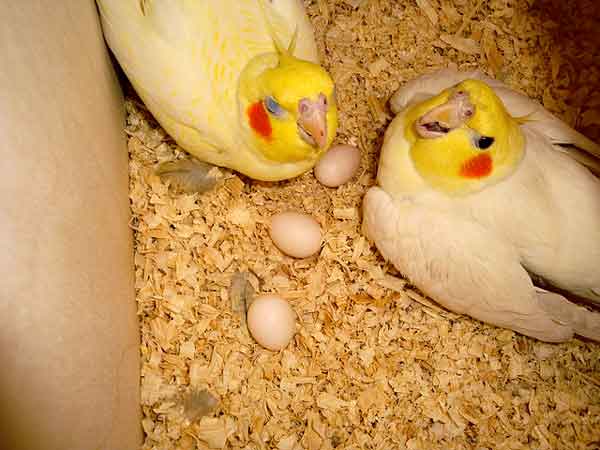
However, if you find an egg unexpectedly, You should quickly address any environmental conditions that may have prompted your bird to produce eggs in the first place.
Estimation of Revenue and Gain
Now it’s time to get down to the serious calculation. Your return on investment is $960, which is a huge profit of 100% if you sell the hand-fed babies at a price as low as the average of $80 per unit.
If you do this, you can retail each baby individually. Even after considering the cost of the cage and other incidental expenditures, your profit is still high.
You can maximize the profit by keeping one or two true offspring pairs besides the existing pair. This way, you can breed more offspring, hence sell more, and make more profit. It will require a bigger breeding cage and other supplementary items if you plan to keep more than one pair. Besides, you may need additional help since taking care of too many birds could be tedious.
But if you want to take it as a full-time business and have enough time, support, and arrangements, you should go for it. Don’t forget to consider the routine vet checkups in the cost estimation.
What kind of nesting space does a cockatiel need to produce offspring successfully?
To begin, you will require a cockatiel breeding cage to house your pair of birds. It should be at least 20 inches by 20 inches and at least 50 inches in height and width.
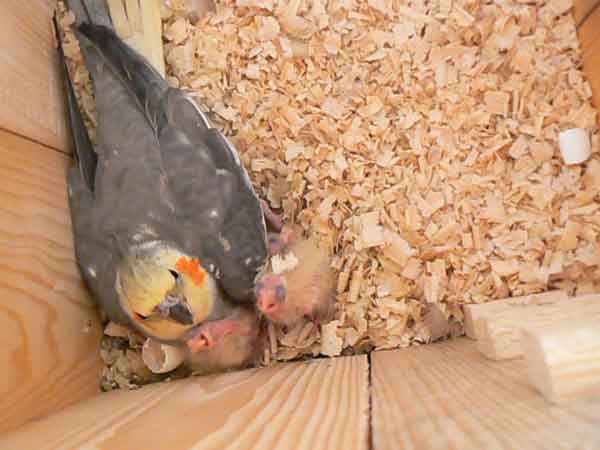
In addition, it ought to have a nest box at least 12 inches by 12 inches in size. A better experience can be had by providing suitable nesting material, such as molted feathers, shredded paper, and paper towels, among other things.
When Do Cockatiels Stop Breeding?
To speak frankly, the majority of experts advise waiting until cockatiels are between 18 and 24 months old to start a breeding program with them.
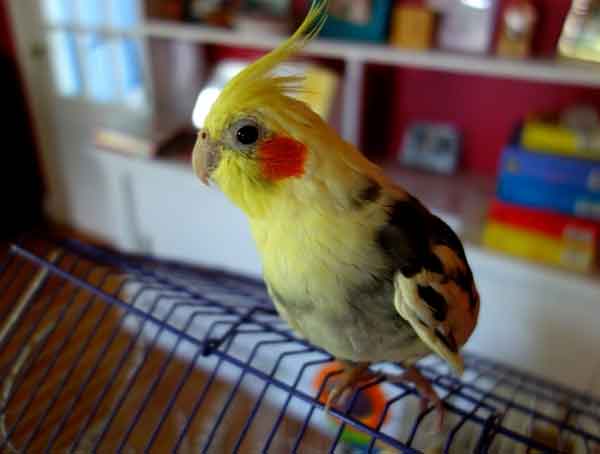
They should, in general, stop participating in breeding activities between the ages of 8 and 10 years old. Simply put, this is the point in time when they experience a significant drop in fertility.
FAQ’s
Still, have queries left about the topic? Chill. We have answered some additional queries for your better understanding.
The process of breeding cockatiels does not present a significant challenge, but it does require a significant investment of time, energy, and effort. In addition to extensive planning, patience is all you require in this situation.
Although it is possible for any breed of bird to lay eggs, the cockatiel has the highest incidence of this trait. Birds can begin laying eggs between the ages of 5 months and 10 years.
There is a possibility that a cockatiel could have two to three clutches per year. On the other hand, if you observe your bird laying eggs at a rate significantly higher than this, the condition is referred to as chronic egg laying.
Conclusion
Well, here we are with all the information you need to know about how to breed cockatiels for profit. Had a difficult time reading this article? Okay then, let’s go for a summary.
Breeding cockatiels may be a lucrative business if you know what you’re doing. If you’ve made it this far, you’re undoubtedly aware of the strategy we explained in simple words. It is profitable; just make sure you buy the right pair and take proper care of them. But before that, you need some seed money to start your business, and things will take off from there on!
